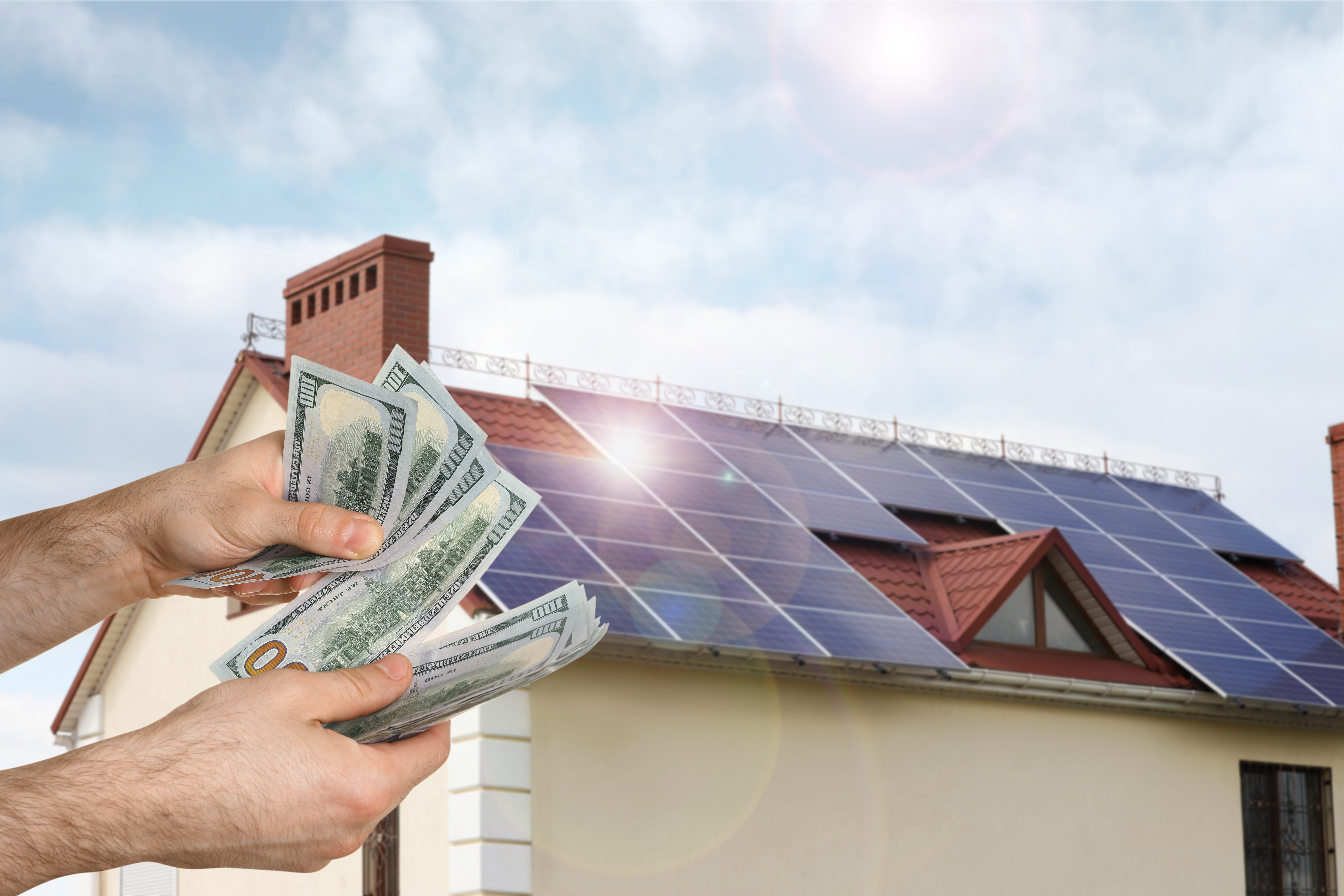Why Choose Simply Solar Illinois for Sustainable Energy Solutions?
Why Choose Simply Solar Illinois for Sustainable Energy Solutions?
Blog Article
Exactly How Solar Power Can Help You Save Cash and Decrease Your Carbon Footprint
The assimilation of solar power right into your energy portfolio presents a compelling chance for both economic savings and ecological stewardship. By harnessing the sun's power, home owners can dramatically minimize their month-to-month energy costs while also protecting against the unpredictability of future power prices. The transition to solar adds to a significant decrease in carbon exhausts, straightening individual financing with more comprehensive ecological objectives. As different government motivations appear, the concern occurs: how can one effectively browse the preliminary financial investments and recurring advantages of solar technology to maximize both financial and environmental gains?
Comprehending Solar Power Financial Savings
While the change to solar power often involves a preliminary financial investment, recognizing solar power financial savings is important for home owners and companies alike. Solar energy systems can considerably minimize electrical energy expenses by taking advantage of the sunlight's power, equating into substantial long-term monetary advantages.
Additionally, solar power systems may get various economic rewards, including tax credit ratings and rebates, further boosting their cost-effectiveness. The accessibility of web metering enables users to market excess power back to the grid, producing an additional profits stream. These aspects add to the overall financial savings linked with solar power.

Along with direct monetary savings, solar power offers the included benefit of raising home worth. Houses outfitted with solar panels are commonly extra eye-catching to customers, as they assure reduced power costs - Simply Solar Illinois. Understanding these elements is important for anybody considering solar energy, as it highlights not just the prospective monetary gains, however likewise the broader environmental and economic benefits of adopting renewable resource options
Initial Prices vs. Long-Term Advantages
When assessing solar power, it is very important to weigh the initial costs versus the long-lasting benefits. The ahead of time financial investment for solar panels, setup, and associated equipment can be significant, frequently varying from $15,000 to $30,000, relying on the system dimension and home energy needs. This first expense may prevent some home owners; nevertheless, it is important to consider the possible savings over time.
Once installed, solar energy systems can considerably lower or also eliminate regular monthly electricity costs, resulting in significant long-lasting economic benefits. Studies indicate that property owners can conserve anywhere from $10,000 to $30,000 over the life expectancy of their solar system, usually 25 years. Furthermore, several states supply rewards, tax credit histories, and refunds that can balance out initial expenses, making solar more obtainable.

Lowering Your Carbon Footprint
Decreasing your carbon footprint is a vital consideration in today's ecologically conscious society, and adopting solar energy is among one of the most reliable techniques to accomplish this goal. Solar power is a clean, eco-friendly resource that substantially diminishes dependence on nonrenewable fuel sources, which are major factors to greenhouse gas emissions.

Furthermore, the prevalent adoption of solar modern technology encourages the growth of environment-friendly work and sustains advancements in power storage and performance. The even more individuals and organizations purchase solar power, the higher the cumulative decrease in carbon discharges, promoting a cleaner ambience for future generations.
Government Motivations and Rebates
Embracing solar power not only benefits the atmosphere but can likewise bring about significant monetary savings, specifically with the availability of federal government motivations and rebates. Different federal, state, and regional programs are created to encourage home owners and companies to buy solar power systems, making the transition much more economical.
One of the most popular incentives is the Federal Investment Tax Credit Rating (ITC), which permits solar system owners to subtract a significant percentage of the installation costs from their federal taxes. This reward has actually been crucial in decreasing the in advance costs linked with solar energy systems. Furthermore, lots of states use their very own tax obligation debts, grants, and rebates that can better boost savings.
Furthermore, some city governments provide real estate tax exceptions for solar installments, making sure that house owners do not deal with boosted building tax obligations as an outcome of their renewable resource investments. Energy firms might additionally use rewards, including net metering and feed-in tolls, which enable solar power individuals to offer excess power back to the grid.
Choosing the Right Planetary System
Choosing the suitable solar system is crucial for optimizing power performance and monetary benefits. The choice pivots on a number of factors, consisting of energy demands, budget plan, and available room. House owners must begin by assessing their power usage to determine the system dimension required for optimal performance.
Following, think about find this the various kinds of solar modern technologies offered. Simply Solar Illinois. Photovoltaic (PV) panels are one of the most typical, transforming sunlight straight into electrical energy, while solar thermal systems concentrate on home heating water. Each type has distinctive link advantages relying on individual demands
Budget plan considerations are also vital. Initial setup prices can vary substantially, so it's crucial to compare quotes from numerous carriers and explore funding choices. Federal government incentives and refunds can better reduce the monetary worry, making solar systems a lot more available.
Final Thought
The ecological advantages of solar energy add to lasting methods important for combating climate change. Federal government motivations boost the feasibility of solar technology adoption, encouraging a change in the direction of a cleaner, much more economically reliable power source.
Report this page